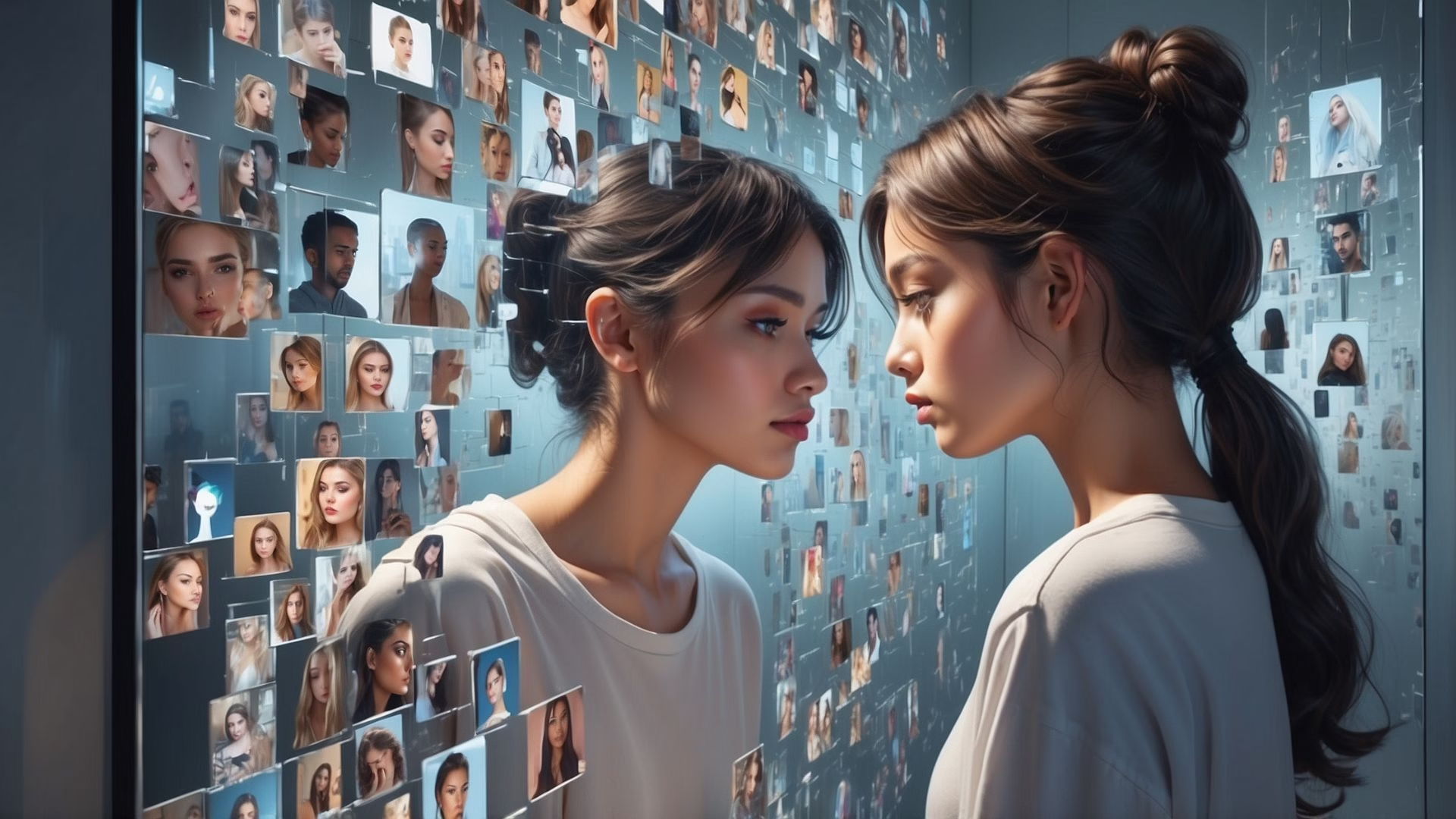Popular culture plays a significant role in shaping how people perceive themselves and others. From magazine covers to social media influencers, pop culture creates and perpetuates ideals of beauty that can profoundly impact body image. While some of these influences are empowering, many contribute to unrealistic standards, leading to negative self-esteem and body dissatisfaction. Let’s dive into how popular culture influences body image, its effects on individuals and society, and what we can do to cultivate a healthier perspective.
What Is Body Image?
Body image refers to how individuals perceive, think, and feel about their bodies. It includes both physical appearance and the internal dialogue people have regarding their size, shape, and overall aesthetics. A healthy body image involves accepting one’s appearance and recognizing that self-worth is not defined by physical characteristics. However, in a world saturated with media, achieving a healthy body image can be challenging.
The Role of Popular Culture in Shaping Body Image
Popular culture reflects and reinforces societal standards of beauty, often through various media outlets. Here are some ways it influences body image:
1. Idealized Beauty Standards
From fashion magazines to Hollywood films, pop culture often promotes narrow and unattainable beauty ideals. For women, this might mean being slim with flawless skin, while for men, it often involves a muscular physique. These portrayals send the message that beauty equates to worthiness and success, creating pressure to conform.
2. Social Media Amplification
Social media has become a significant part of popular culture, with platforms like Instagram and TikTok driving trends. Influencers often present curated and edited versions of their lives, which can make viewers feel inadequate by comparison. The use of filters and photo editing tools adds another layer of unreality to these portrayals.
3. Representation Matters
Diverse representation in media is crucial, but historically, popular culture has lacked inclusivity in showcasing different body types, races, and abilities. When certain groups are underrepresented or stereotyped, it perpetuates the idea that only specific appearances are valuable or desirable.
Effects of Popular Culture on Body Image
The impact of popular culture on body image can be profound, particularly among vulnerable groups such as teenagers.
1. Low Self-Esteem
Unrealistic beauty standards can lead individuals to compare themselves unfavorably with idealized images, resulting in diminished self-esteem and confidence.
2. Body Dysmorphia
Constant exposure to edited and filtered images can distort perceptions of what is normal, contributing to body dysmorphic disorder (BDD), a condition characterized by obsessive concerns about perceived flaws.
3. Disordered Eating and Exercise Habits
The pressure to achieve a “perfect” body can lead to unhealthy behaviors, such as restrictive dieting, over-exercising, or engaging in harmful weight-loss practices.
4. Mental Health Struggles
Negative body image is linked to depression, anxiety, and feelings of isolation. When individuals feel they don’t measure up to societal standards, it can take a toll on their mental well-being.
How to Combat Negative Influences
While popular culture’s impact can feel overwhelming, there are ways to counteract its effects and foster a healthier body image:
1. Promote Media Literacy
Understanding how media content is curated, edited, and often manipulated can help individuals view images more critically. Knowing that even celebrities use filters and photo editing tools can reduce feelings of inadequacy.
2. Celebrate Diversity
Encouraging and supporting diverse representation in media helps challenge narrow beauty standards and promotes inclusivity. Seeing individuals of different body types, ethnicities, and abilities in popular culture fosters acceptance and appreciation for all forms of beauty.
3. Focus on Health, Not Appearance
Shifting the conversation from appearance to overall well-being can help people appreciate their bodies for what they can do rather than how they look. This includes emphasizing mental, emotional, and physical health.
4. Build Self-Compassion
Practicing self-compassion involves treating oneself with kindness and understanding rather than criticism. Recognizing that nobody is perfect and that beauty comes in many forms can boost self-esteem.
5. Advocate for Change
Challenging media companies, fashion brands, and influencers to adopt realistic portrayals of beauty can lead to systemic shifts in how body image is represented. Supporting campaigns that promote body positivity can also create a ripple effect in society.
Positive Trends in Popular Culture
While there are still challenges, popular culture has seen a growing movement toward body positivity and inclusivity in recent years. Brands are featuring models of all shapes, sizes, and backgrounds, and influencers are embracing authenticity by sharing unfiltered content. Campaigns like #BodyPositivity and #LoveYourself encourage individuals to embrace their unique beauty and reject harmful comparisons.
The influence of popular culture on body image is undeniable, but it doesn’t have to define us. By cultivating media literacy, promoting diversity, and focusing on self-acceptance, we can challenge unrealistic standards and create a more inclusive narrative. Popular culture has the power to shape how we see ourselves and others, and with conscious effort, it can become a force for positive change, inspiring confidence and self-love for all.
Let’s Talk
Body image—what a complicated relationship we have with it, right? It’s interesting to think about how much of what we see in the mirror is shaped by what we consume in media. You might think, “It’s just a picture,” or “That influencer is just posting about their day,” but the reality is, every image, ad, or post is influencing us in ways we don’t always notice. It’s not just about beauty standards; it’s about the stories we tell ourselves based on those standards.
Take social media, for example. How often do we scroll through Instagram or TikTok, seeing filtered faces and perfectly angled bodies, and subconsciously compare ourselves? It’s fascinating how something as simple as a filter can create an unattainable image. Think about this: have you ever seen an unedited photo of someone and been shocked that they don’t look the way you expected? That moment says more about our expectations than about them, doesn’t it?
Now, let’s talk about representation. It’s great that we’re seeing more diversity in body types, skin tones, and abilities in popular culture, but let’s be honest—there’s still a long way to go. Sometimes, the token inclusion of a plus-sized model or a person with a disability feels more like a marketing strategy than genuine progress. What if instead of celebrating “diversity moments,” we simply normalized them? Wouldn’t that be a more honest reflection of society?
And then there’s the question of personal responsibility versus societal influence. Sure, we can blame media for setting unrealistic standards, but aren’t we part of the system? Every time we click “like” on a heavily edited photo or buy into a trend that emphasizes perfection, we’re reinforcing those standards. How do we break that cycle? Is it about being more selective with what we consume, or is it about actively supporting creators who promote authenticity?
Here’s something else to think about: how do we talk about body image with kids and teenagers? They’re growing up in a world where selfies are currency, and beauty seems tied to validation. How do we teach them—and ourselves—that self-worth isn’t about likes or filters but about being comfortable in our own skin?
Body image is deeply personal, but it’s also a collective issue. The way we see ourselves is tied to the way society portrays beauty. Maybe the key is finding a balance—acknowledging the influence of popular culture but also taking control of the narrative we tell ourselves. So, what’s your take? Is there something you’ve seen or done that helped you step away from unrealistic standards and embrace a more positive body image?
Let’s Learn Vocabulary in Context
Let’s start with “body image.” This phrase refers to how you see and feel about your own body. It’s not just about your reflection in the mirror; it’s the story you tell yourself about how you look. For instance, “Improving my body image meant focusing on health rather than appearance.”
Next is “beauty standards.” These are societal ideas of what is considered attractive or desirable. Beauty standards can vary across cultures, but they often set unrealistic expectations. You might say, “I wish beauty standards included more diversity.”
Then there’s “representation.” Representation means how different groups are shown in media. In discussions about body image, representation is crucial because it shapes perceptions of who is seen as beautiful or valuable. For example, “Representation of diverse body types can challenge narrow beauty ideals.”
Let’s talk about “self-esteem.” This term refers to how much you value yourself. Body image and self-esteem are closely connected. For example, “Her self-esteem improved when she stopped comparing herself to influencers online.”
Another key term is “filters.” Filters are tools that alter the appearance of photos or videos, often making them look more polished or idealized. For example, “Using too many filters can create unrealistic expectations of beauty.”
How about “curation”? In the context of social media, curation refers to carefully selecting and presenting content. For instance, “The curation of perfect posts can make real life seem less satisfying.”
Consider “inclusivity.” Inclusivity means including and valuing all people, regardless of their differences. When it comes to body image, inclusivity in media representation is essential. For example, “Inclusivity in advertising helps people feel seen and accepted.”
Let’s look at “unrealistic.” This word describes something that is not practical or attainable. For example, “The beauty ideals promoted on social media are often unrealistic.”
Another useful word is “authenticity.” Authenticity means being genuine or true to oneself. Authenticity in media can help combat negative body image. For example, “Her unfiltered photos are a refreshing example of authenticity.”
Finally, there’s “mental health.” This term refers to emotional and psychological well-being. Body image struggles often affect mental health. For example, “Improving my relationship with my body had a positive impact on my mental health.”
Here’s something to think about: how do words like representation and inclusivity change the way you think about body image in media? And how can practicing authenticity help improve not just your self-esteem but also the way others feel about themselves?
Let’s Discuss & Write
Discussion Questions
- How do beauty standards in popular culture differ across countries and cultures?
- Have you ever noticed how certain types of representation in media made you feel more included or excluded? Why do you think that is?
- In what ways can we hold social media platforms and influencers accountable for promoting healthier body image messages?
- What role do you think education plays in helping young people develop a positive body image?
- How do you balance consuming popular culture with maintaining a healthy and realistic view of yourself?
Writing Prompt
Write a short reflective piece about a time when you felt influenced by media or popular culture regarding your body image. What did you learn from that experience, and how did it shape your perspective on self-worth? Include how you overcame or addressed any negative feelings and what advice you would give to someone facing similar challenges. Aim for 250–300 words, focusing on personal growth and practical takeaways.










0 Comments